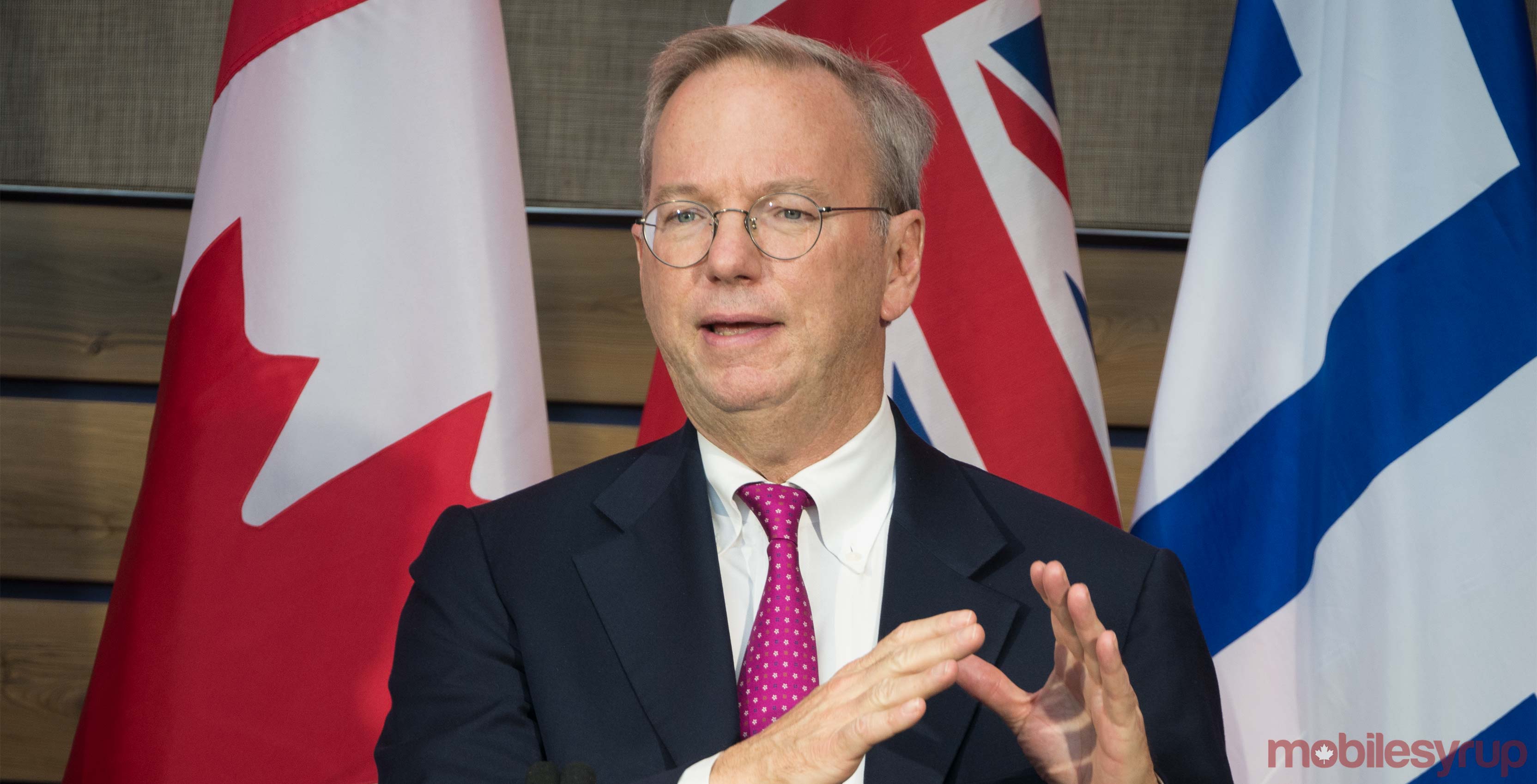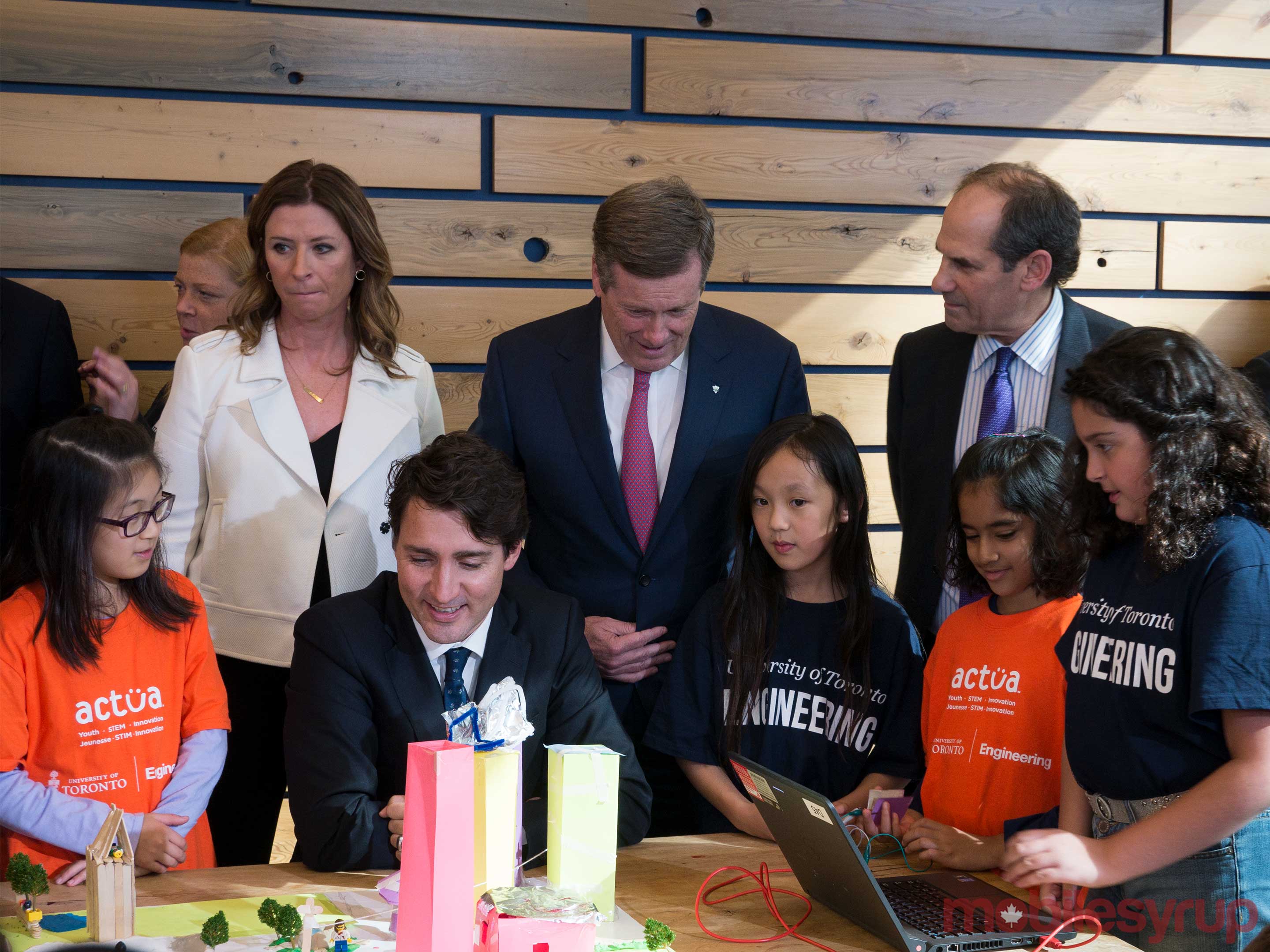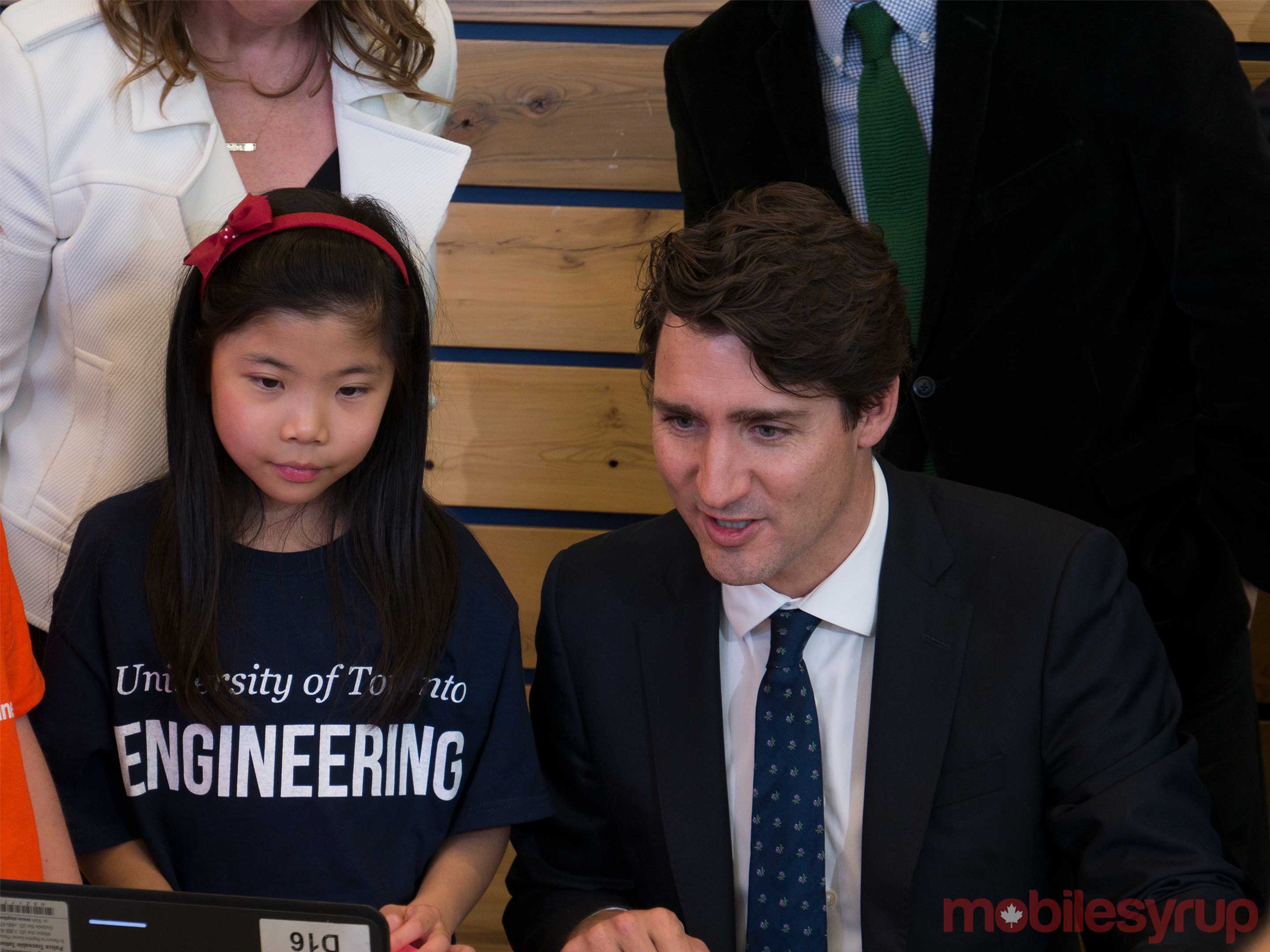
Sidewalk Labs, a subsidiary of Google’s parent company Alphabet, has announced that it’s officially partnering with Waterfront Toronto to build a harbourfront neighbourhood and innovation district dubbed ‘Sidewalk Toronto.’
The project will begin with the creation of a neighbourhood called ‘Quayside.’
Sidewalk Labs will be investing an initial $50 million USD to an “initial phase of joint planning and pilot project testing.”

As per Sidewalk Labs’ vision for the district — as well as the project as envisioned by the Canadian, Ontario and Toronto governments — is to create a hub for urban development and urban planning, while also establishing an actual neighbourhood for residents.
Sidewalk Labs CEO Dan Doctoroff announced the approval of the project at an October 17th, 2017 media event, alongside Prime Minister Justin Trudeau, Ontario Premiere Kathleen Wynne, Toronto Mayor John Tory and Eric Schmidt, the current executive chairman of Alphabet who served as Google’s CEO from 2001 to 2011.
“We will create a new testbed for new technologies in Quayside,” said Trudeau, at the event. “This project will become a model for others not only in Canada but around the world.”

Google will also be moving its Toronto headquarters to the Eastern Waterfront.
“Waterfront Toronto represents the very best that can come from all our government working together,” said Tory. “There is, I assure you…no better place in the world for global companies like Sidewalk Labs to develop solutions to address real urban challenges [than Toronto].”
A town hall event is set to take place on November 1st, 2017, where members of the Toronto community will be able to contribute their thoughts on the Sidewalk Labs development proposal.

“We looked all over the world for the perfect place to bring this vision to life and we found it here in Toronto,” said Doctoroff. “We found found a perfect partner…and we found a perfect site to do it in.”
Schmidt echoed Doctoroff’s sentiments, adding that “this is not some random activity from our perspective…this is the culmination on our side of almost 10 years of thinking about how technology could improve people’s lives in the ways that have been defined already.”
Sidewalk Labs is an Alphabet company that focuses on urban planning and development.
Tempering the enthusiasm
Former Wind Mobile (now Freedom Mobile) CEO and How We Can Win author Anthony Lacavera has previously expressed a certain amount of reticence about government spending aimed at establishing bases or headquarters for foreign multinational corporations.
In an email exchange with MobileSyrup, he described the Sidewalk Toronto project as a “Trojan horse attack on Canada’s future prosperity.”
“Google is not coming to Canada because they are concerned about Canada’s long-term prosperity, they are coming because Canada has world-leading academic institutions focused on artificial intelligence,” said Lacavera. “All of the tax-payer funded research that has created world-leading intellectual property in artificial intelligence for Canada is now being siphoned out of Canada (Google already hired Geoffrey Hinton as head of Google AI) by U.S.-based multinationals.”
“Stop going for the bronze medal.”
Indeed, in his speech at the announcement conference, Trudeau praised Hinton’s work. Schmidt also commented on the Canadian work done to advance artificial intelligence research.
“…Montreal invented the basis for machine learning and AI, which is the basis of Google today,” said Schmidt. “So thank you very much Canada.”
Lacavera was critical of Canada’s presence as a “junior partner to the U.S.”
“Stop going for the bronze medal,” said Lacavera. “We need to build our own multinational giants that will go for gold.”
Still, while Lacavera expressed skepticism at the Canadian government’s warm reception of Sidewalk Labs and Alphabet, not all industry insiders are as critical of the new partnership.
In an email exchange, Canadian venture capitalist Bruce Croxon said that there’s “no one better [than Google] to help out our future city development exist today.”
“Amazon is a job sucker targeting engineers that we need to grow on our own,” said Croxon. “I think [the] Google project will be a new leading edge platform that will help us create new homegrown applications.”
Croxon even concluded on a slightly optimistic note: “I’m in.”
Photography by Patrick O’Rourke.
Update 18/10/2017: Updated with comment from Anthony Lacavera and Bruce Croxon.
MobileSyrup may earn a commission from purchases made via our links, which helps fund the journalism we provide free on our website. These links do not influence our editorial content. Support us here.


